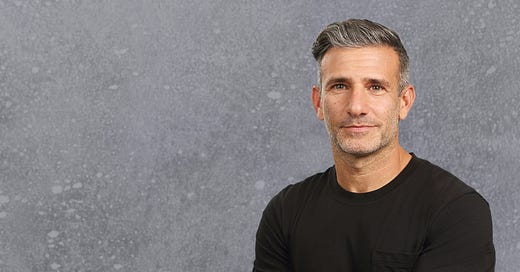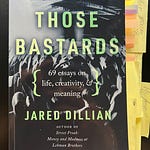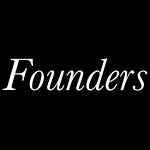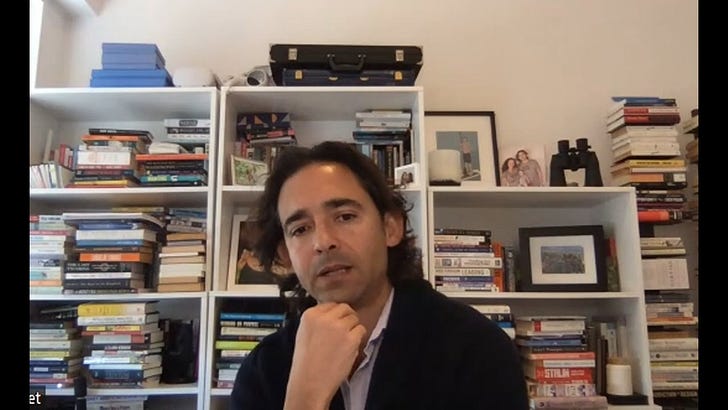Hello everyone,
A few months ago, I finally had the chance to record a conversation with Josh Wolfe of Lux Capital. This was published at Compound (I also previously profiled Josh).
Josh has been a frequent podcast guest and I did a lot of prep work to find questions he hadn’t tackled yet. As a result, I think it’s a timeless conversation with the exception of a brief discussion of the macro cycle (Josh and Lux were bearish and cautious before markets turned down).
Josh and his partners were young with an unconventional background when they bootstrapped Lux. With little capital under management they earned additional cash flow through a research business.
We sold [the report] for $4,750 bucks a copy, sold a few 100 of them and helped keep our little business alive. I got access to all these famous CEOs and VCs. Vinod Khosla was one of the first VCs to buy it. And I was like, Okay, I'll sell it to you, but only if I can come and meet you. So I went out to Sand Hill Road and I remember his office, I remember viscerally what it looked like, it was the first major billionaire VC I met.
I absolutely loved his comments about using doubt as motivation and fuel.
Anybody that doesn't believe in you, either you let that bring you down, or it becomes fuel. To this day, we like to say that we believe before others understand. Because there really is something powerful, just psychologically, of believing in somebody.
I would be on a run on a treadmill, and I'd be getting tired. And I would imagine some of these heroes cheering me on. ‘You can do it, come on.’ I have ghost images of these individuals to cheer me on. Peter and I would find strength in the people that didn't think we were going to make it and felt really motivated to prove correct the people who did.
It’s also a framework he uses to assess founders. Chips on shoulders put chips in pockets as he likes to say.
The best entrepreneurs we see are the ones who are so obsessed to prove other people wrong who don't think this is possible. That to me feels honest.
It feels petty, but it's real.
I also admired Josh’s focus on his family. It’s easy to neglect that if you’re highly competitive.
Being with my kids is just the great salve. … Family stuff for me is very cathartic. Whatever is going on, I could be negotiating a big financing. And my little guy who's six is like, Dad, I can't get the screw into this thing and that is more important. Getting the screw into the little toy is more important at that moment. That to me is a big thing.
Thank you for listening and happy holidays🎄🕎
You can listen to this conversation on Spotify, Apple, anchor (and via RSS) or find a full transcript at Compound.
If you’re looking for an all-in-one solution to manage your personal finances, Compound can help (disclosures).
A few things I learned from Josh:
Why does a VC spend so much time on macro?
Ignorance of the macro is no virtue. … We're trying to get a palpable sense for what massive currents are shaping the environment. … The number one determinant of future returns is never the hockey stick curve that some consultant or bank or optimistic entrepreneur shows. It's how much capital is going into a sector when capital is abundant.
Lessons from living through two cycles.
There are lots of differences, but the market sentiment similarities make me think that we're in Q3 of 2000. You're going through the Kubler-Ross five stages of grief … Markets have to go through that, both individually as investors, and then collectively. That's our guiding playbook at the moment.
Use your struggles to grow and build intrinsic motivation.
Almost every step of the way, there was some moment when we were running out of cash. I still remember the people that told me no for $250,000 checks or dragged me for six months doing diligence on data that didn't even exist to tell us that they were writing a $100k check. That was a formative thing because it shaped the kind of people that we want it to be when we pay it forward. You need struggle and you need people that doubt you so that you can prove them wrong.
Networking at the beginning of your career.
I remember I wanted to get in touch with some famous investor. I was like, You'd be doing me the biggest favor if you can introduce me to him. And he was like, stop, right there, stop. I thought I insulted him. Maybe this ask crossed the line?
And he's like, Do you believe in yourself and what you're doing? And I was like, Yeah. And he's like, Do you think anybody else knows what you know in this particular field? I'm, like, No, I feel like I'm one of the best. He's like, so who's doing who the favor? It was a little bit of a mindset switch, even if you're slightly deceiving yourself to get over that absence of confidence.
And the same way that when there's a task that you don't want to do, thinking, I get to do this, because you could be dying tomorrow, versus I have to do it. That was a real confidence booster. Not arrogance but, I'm doing these people a favor by both showing interest and wanting to connect. But also because I have something of value.
Building an enduring partnership.
We studied why firms split. One of them was geographic and one of them was sector. … Avoid sector silos so you don't get a coup, which is what happened at firms like Greylock and Matrix and Venrock. One partner became the dominant player and said, okay, we're shutting down that other office. So everybody here is a generalist.
I feel like presence is really important for the sustenance and sustainability of a culture. Like any system, things fall apart. Entropy is the norm. You need to put energy into a system to prevent entropy. That's true of human relationships.
‘Crazy’ founders.
I don't mind if they say the crazy thing. I don't mind if they have an ambition that borders on delusions of grandeur. I just want them to be honest.
Becoming a better storyteller.
If you take a technological view of this, language is a form of code, just like law is a form of code. And just like code and software can influence machines, I am influenced by language, I'm influenced by a beautiful quote. I'm influenced by a great scene of dialogue. I just wanted to be better at that.
Invest in having time, memories, experiences (and assets).
I'd say we're relatively conservative. I don't care about boats, or cars, or watches or material possessions. I like vacation indulgence and we invest a lot in our kids’ education. I really value time and moments and memories and experiences. Wherever money can help to create that, that's what we invest in.













Share this post